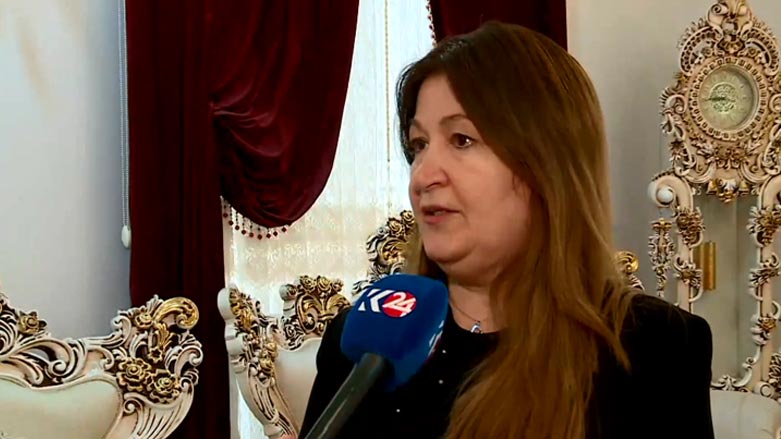Kurdish MPs won't attend parliament session on US troops' future in Iraq

ERBIL (Kurdistan 24) – A Kurdish lawmaker in the Iraqi parliament said on Sunday that representatives from the Kurdistan Region would not attend a special session later that day to discuss an Iraqi response to the recent American airstrike in Baghdad which killed leading Iranian general Qasim Soleimani and the head of a Tehran-aligned militia early Friday morning.
Read More: US strike kills Qasim Soleimani and Abu Mahdi al-Muhandis
Vian Sabri, the head of the Kurdistan Democratic Party’s (KDP) bloc in the parliament, told Kurdistan 24, “The Kurdish blocs will not participate in today’s session.”
Sabri explained, “We prefer to take the position of neutrality on this issue and what is in the interest of Iraq and the Kurdistan Region.”
Some of the most vocal politicians aligned with Iran or the Iranian-backed militias of the Popular Mobilization Forces (PMF) are expected to bring up the issue of supporting the “removal of foreign forces from Iraqi territory,” a clear reference to US troops.
“There is no need for the presence of American forces after defeating Daesh (Islamic State),” Shia lawmaker and member of the parliamentary legal committee Ammar al-Shibli recently told Reuters.
Many expect a resolution attempting to expel US forces from the country will be offered at the extraordinary session by parties close to Iran.
“The agreement concluded between Iraq and America includes in one of its provisions that the federal government must notify Washington in writing if it wishes it to withdraw, and after a year it enters into force,” she continued.
“If there is an amendment, it must be with the consent of the two sides within the constitution of the two countries,” the parliament member added. “This is very difficult.”
Sabri said that lawmakers should study current agreements between Baghdad and Washington, which, she said, “not only contain the issue of security and defense, but also other political, economic, and cultural aspects.”
She stressed that Kurdish parties do not support the escalation and call for calm.
Caught in the middle of two nations with which they must deal, many officials from both the federal government in Baghdad and the Kurdistan Region have called for restraint and calm, stressing that Iraq must not be an arena for settling international scores.
When asked whether or not Kurdish parties were being pressured by other parties to come out publically in support of one or another stance in the controversial issue, Sabri said, “We are making our decisions away from any pressure. The Kurdish blocs, Sunni representatives, and some representatives from other blocs will not participate in the session.”
“We do not want Iraq to be a scene of inter-state conflict.”
